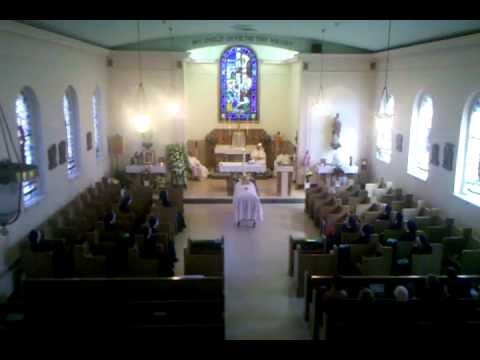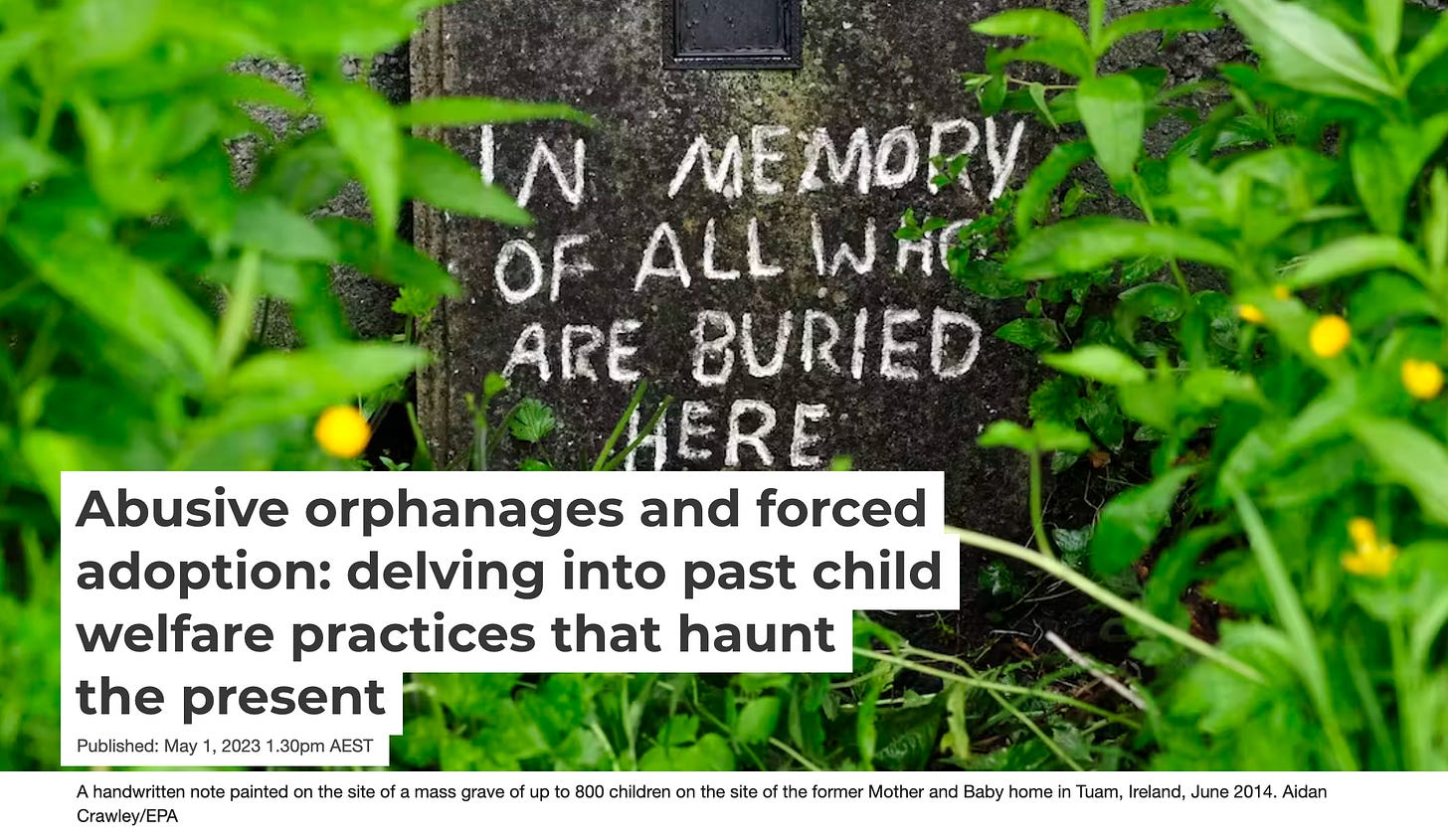The story of St. Colman’s Orphanage in Albany, New York, is as long, complex and stunning as that of St. Joseph’s in Vermont. Between 2014 and 2017, I visited the place many times. I knocked on the door, I called, I left letters at reception, but the order of nuns who ran the home did not respond.
The last time I was there, I drove past the building on an oppressively hot summer afternoon. The car windows were down, the breeze was warm, and I could see a nun sitting on a porch swing at the front of the institution. The building was set back quite far from the road, but as she swung gently back and forth, my head turning to watch her, her head following mine, I could see that she still wore the full habit of her order: white band across her forehead, thick black cloth draped about her head, long black dress. So much fabric on a such a humid day. Even looking at her made me hot, yet she did not look uncomfortable at all.
I wrote about St. Colman’s in Chapter 17 of Ghosts of the Orphanage, and after the book was finished, I learned that the survivors of the orphanage had once more assembled to litigate against the church. In 2019, the state of New York opened a window on the statute of limitations for claims of sexual abuse against children. It was not as comprehensive as the total repeal of limitations in Vermont, but it meant that at last some people, like the former residents of St. Colman’s, denied acknowledgment in the 1990s, now had an opportunity to pursue justice. However, on March 15th, 2023, the Roman Catholic Diocese of Albany declared bankruptcy.
Twenty-six US dioceses have filed for bankruptcy in recent years, says Jason Berry, author of Lead Us Not Into Temptation. For survivors, the action means that there is no there there anymore—there’s nothing left to pursue. Overnight, the institution transformed and it can no longer be touched through civil litigation.
One of the St. Colman’s survivors’ attorneys summed up their view of the action, telling the Associated Press, “We urge everyone to see the Diocese’s strategy for what it is: chicanery designed to perpetuate a $600 million corporation’s pattern of decadence, deception, and denial.”
The Bishop of Albany, Edward Scharfenberger, put it this way to the Associated Press: “The decision to file was not arrived at easily and I know it may cause pain and suffering, but we, as a Church, can get through this and grow stronger together.”
It’s unclear who Scharfenberger is talking to. Who is his “we? It is not the survivors of St. Colman’s.
I came across this video, identified as the funeral mass of one of the nuns of St. Colman’s. Those who know will recognise her name. It encapsulates rather well the dissonance of the survivors’ world. The beauty of the music and the reverence of the process are so striking, and all are such a disorienting contrast to the survivor’s experience in the care of the same people.
The Lost Debate
This was a great conversation, and I love what this group are trying to do—have good faith discussions across political boundaries. Respectful, curious debate between people who vote differently. Bring it on!
The Conversation
Shurlee Swain is one of Australia’s, really the world’s, true historians of institutional childcare. She wrote about Ghosts of the Orphanage and Crazy Bastard by Abraham Maddison, a book about adoption, for The Conversation. Read more here.




